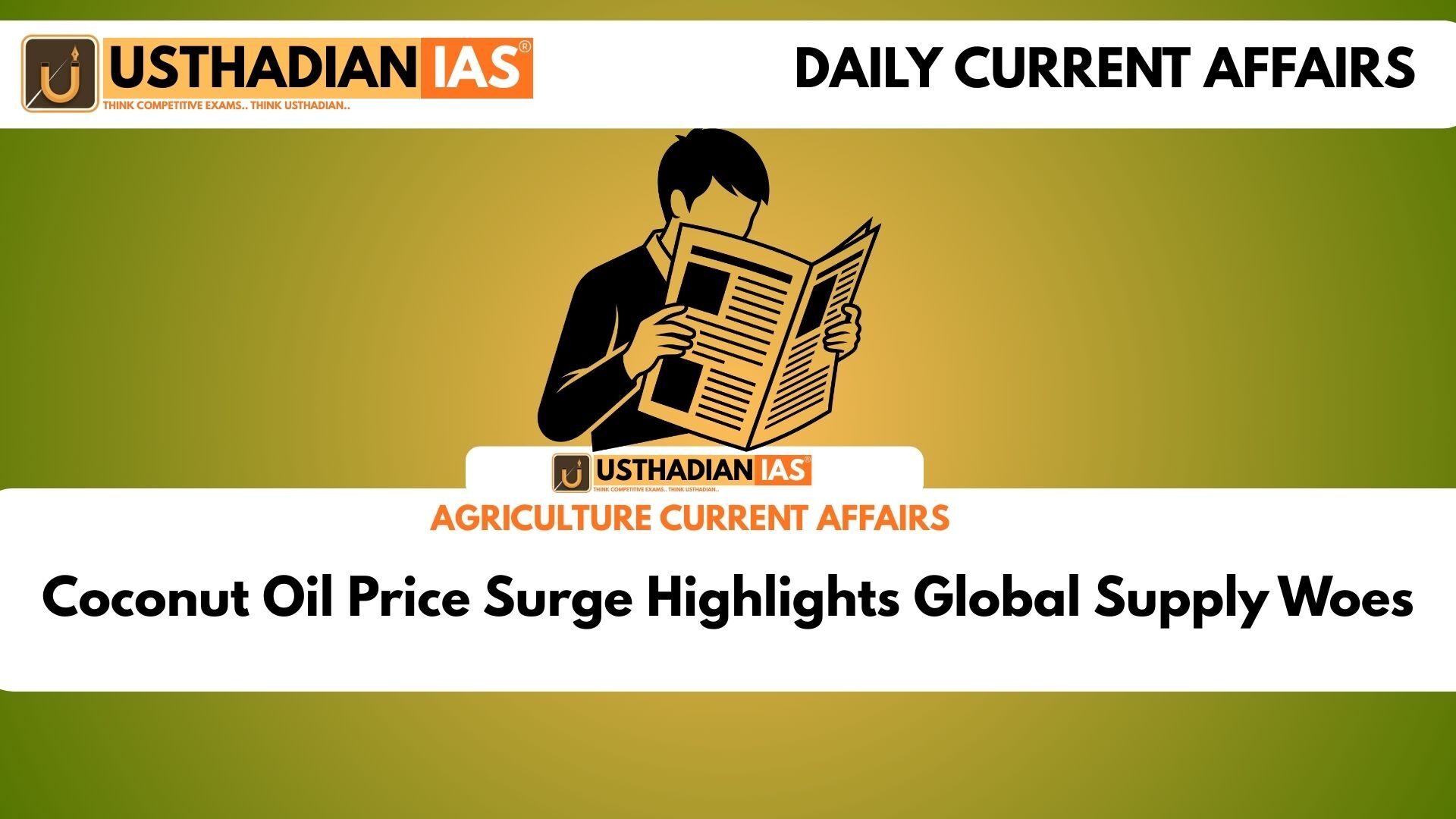Coconut oil becomes India’s costliest edible oil
Coconut Oil Price Surge Highlights Global Supply Woes: Coconut oil prices in India have soared sharply in 2025, with retail prices in Kerala touching ₹460/kg, overtaking even sesame oil, a traditionally premium product. Despite overall retail food inflation falling to -1.06% in June 2025, essential commodities like vegetable oils remain a concern for households.
Drought and global supply hit key producers
The price hike is largely driven by global supply disruptions, especially in the Philippines and Indonesia, two of the world’s largest coconut oil exporters. These nations faced an El Niño-induced drought from July 2023 to June 2024, severely affecting coconut flowering and fruiting cycles.
Static GK fact: El Niño refers to a climatic pattern that causes abnormal warming of ocean waters in the central and eastern Pacific, impacting monsoons and crop yields worldwide.
Domestic production struggles to meet demand
India’s coconut oil production has stagnated or declined. Of the 5.7 lakh tonnes produced annually, only 3.9 lakh tonnes are used for cooking. The rest goes into cosmetics and industrial products, reducing availability for household use. In contrast, imported oils like palm, soyabean, and sunflower dominate with 72% market share.
Kerala no longer leads in coconut output
Kerala, once India’s top coconut-producing state, now trails behind Tamil Nadu and Karnataka. Even in Kerala, per capita consumption of coconut oil is only 2 litres annually, lower than palm oil’s 4 litres. This shift is due to both price sensitivity and changing consumption patterns.
Static GK fact: The Coconut Development Board under the Ministry of Agriculture promotes coconut cultivation and processing in India.
Global policies worsen supply crunch
In response to domestic shortages, Indonesia is considering restrictions on raw coconut exports. Meanwhile, the Philippines has made it mandatory to blend coconut oil with diesel to produce biodiesel, further shrinking export availability. These moves have reduced global supply drastically.
Static GK tip: The Philippines is the world’s second-largest coconut producer after Indonesia.
Long gestation limits supply recovery
Coconut trees take 3–5 years to mature and start fruiting, so supply cannot improve overnight. This makes the current shortage a medium-term issue. Buyers are stockpiling coconut oil, anticipating further price rises, adding pressure on retail markets.
Market implications for Indian consumers
The low share of coconut oil in India’s edible oil basket means the overall consumer impact is limited, but regional markets like Kerala and coastal Tamil Nadu feel the brunt. The surge may accelerate a shift toward cheaper imported oils, reinforcing India’s dependency on oil imports.
Static Usthadian Current Affairs Table
Coconut Oil Price Surge Highlights Global Supply Woes:
| Fact | Detail |
| Retail coconut oil price in Kerala | ₹460/kg (July 2025) |
| India’s retail food inflation (June 2025) | -1.06% |
| Share of coconut oil in India’s edible oil use | Small; only 3.9 lakh tonnes for cooking |
| Coconut oil gestation period | 3–5 years |
| El Niño drought period | July 2023 – June 2024 |
| Top global coconut producers | Indonesia, Philippines |
| Kerala’s per capita coconut oil use | 2 litres/year |
| Palm oil market share in India | High; cheaper and widely used |
| Philippines’ new biodiesel policy | Mandated blending with coconut oil |
| Agency for coconut development in India | Coconut Development Board |








